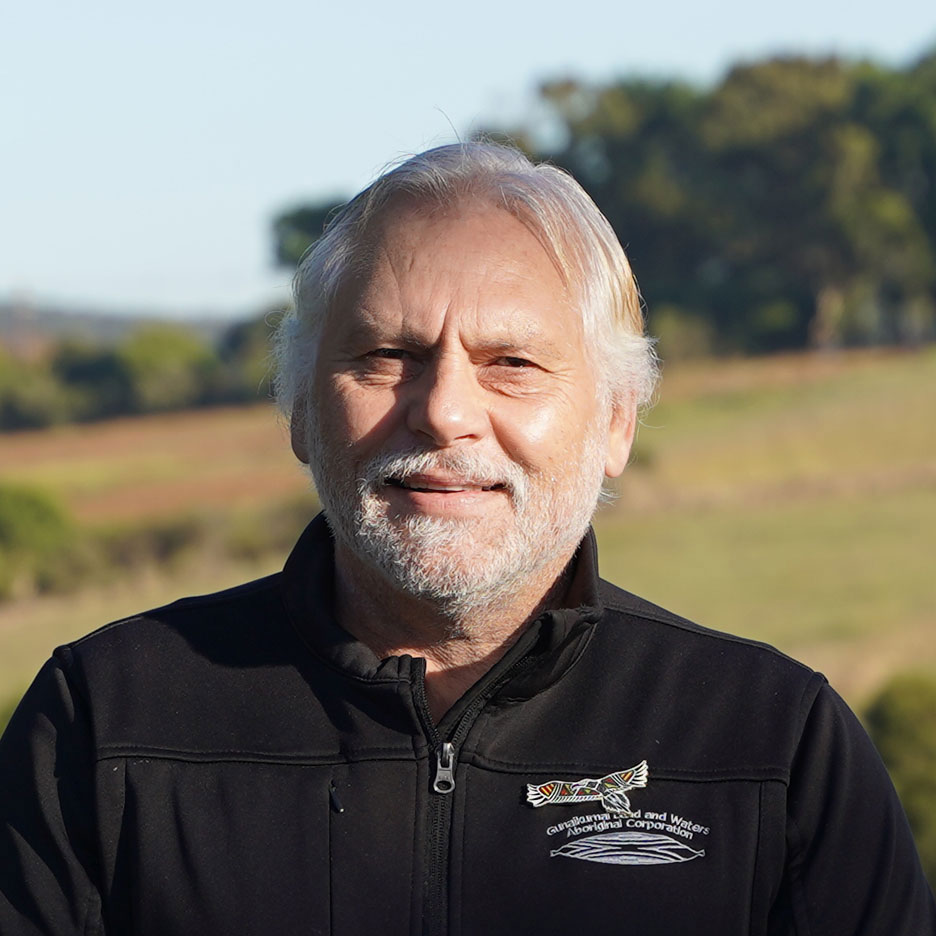Firstly, I would like to thank all Gunnaikurnai members who supported me in the recent FPAV Reserved seat election process. I am incredibly honoured to represent you.
I’m looking forward to ensuring there is continuity in the work that we have stood up over the previous three years, by way of identifying where we can all support innovation in the journey to self-determination.
Whilst I am a reserved seat member, I will always support consultations and listen to the matters that mean most to mob anywhere in Victoria as the work has been shaped by you. The heavy lifting has been done with, the Self Determination Fund, The Treaty Authority, and the Treaty Negotiation Framework, now is the call for action to make the Treaty elements work for us and leverage off the intellectual power of all 33 representatives to ensure that we sustain momentum for change.
All of us need to show up, have a say and effect the change required, knowing that we can alter the narrative in this state. I’m looking forward to chatting and being informed by everyone’s thoughts and activating your voice on the Assembly.
Member Updates
March 2025 — Meeting of Assembly at Traralgon
Name: Troy McDonald
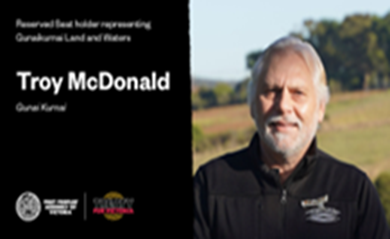
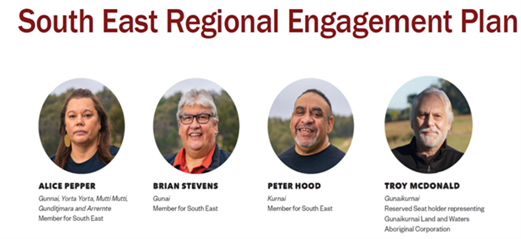
Chamber: March 2025
Region: South East
Reserved Seat: GunaiKurnai Land and Waters Aboriginal Corporation
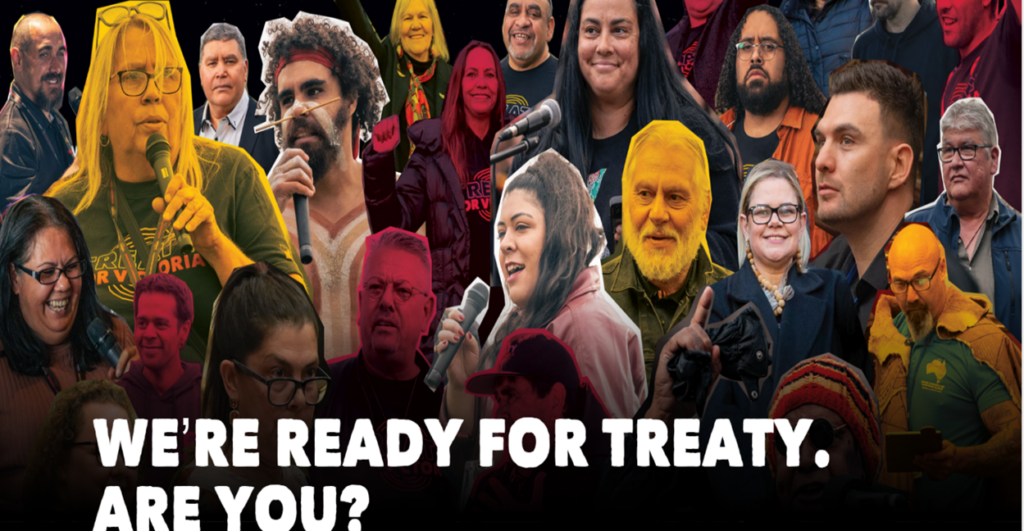
Introduction
Hello everyone, it has been a very busy time since January and the last report. Lots going on and heaps of activity happening around the state, I have been working on several activities that we all hope will strengthen key activity across the Treaty. My work priorities area aligned to the following activities below.
- Treaty Day Out Gippsland
- Treaty Negotiation Team
- Self-determination Fund – Grant, Gunnai Kurnai land and water Aboriginal Corporation
- Data sovereignty
- Reserved Seat Activity
- Economic Prosperity
- First principles review
1. Treaty Day Out Gippsland
We managed to pull this off “Wow – what a deadly event.” We estimate that approximately 3000 people from across the state attended this awesome event. Really would like to thank you engagement team and our wonderful Southeast members for the planning that was undertaken to pull this off. I reckon I spoke to 150 people over the day, not one single negative view, happy Kids Elders, and mob was a great day to link up with family and people that you have not seen for a while. Where not sure where treaty day out will take us n the future, that said you SE members talked the talk and delivered, big shout out to Jackie, Zaralee, Olivia Walsh and Tanya H for all their amazing work. It would be remis of me not to mention the fantastic work of Alice Pepper who played a significant role in the cultural element’s component of the TDO. The whole event was special by way of galvanising community identity, culture, Music and fun, couple of Pics below to trigger memories of the day.


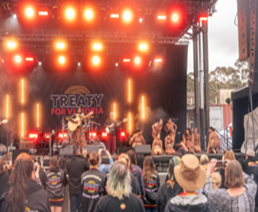
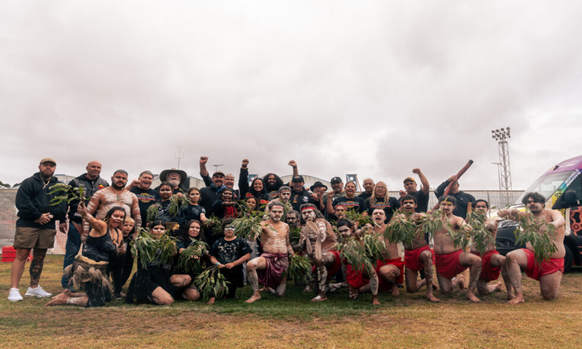
If fact TDO was such a deadly day I reckon its appropriate to weave as many photos in to this report as possible.
2. Treaty Negotiation Team

Negotiation in Portland and Ceremony at Convincing Ground
Parties met at a significant site on the beach of Allestree at Portland Bay, known as the Convincing Ground – in reference to a massacre of the Kilcarer Gundidj clan which took place in 1834.
The site is significant for these discussions, with parties discussing how truth and reconciliation will be embedded in outcomes from Treaty discussions. This follows the nation-leading work of Victoria’s Yoorrook Justice Commission.
As part of the Treaty negotiation team alongside Ngarra, Rueben Indie and Nerita we have had a very busy 3 months negotiating the States Opening Position to future Treaty, I am so privileged to be working alongside such clever and passionate people, whose focus is to get the job done, TNT members have a noncompromising approach the work at hand.
Topics discussed in negotiations at Allestree included:
- Capturing stories from across the Victorian community of the history and experiences of First Peoples
- Retaining an archive of this information and public education opportunities
- Continuing the truth-telling journey after the conclusion of the Yoorrook Justice Commission.
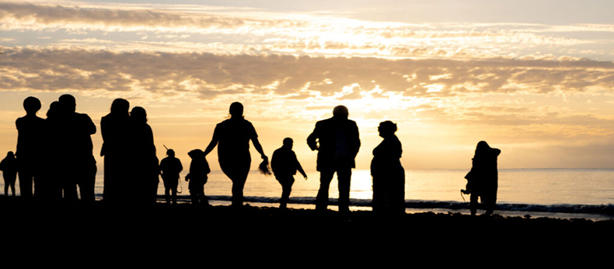
3. Self Determination fund
The Gunnai Kurnai Land and waters Aboriginal Corporation were successful in accesses the self-determination fund if mob are interested in having community or clan group conversations at the family level please contact GLWAC as to how you can leverage off these funds to support your Treaty Yarm – these are important conversations to shape the direction and mobilise mob to ensure that they are effectively participating the treaty yards that matter to them.
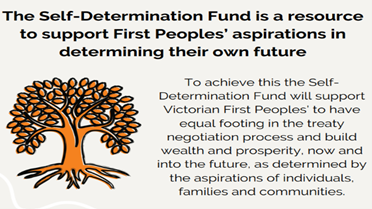
4. Indigenous Data sovereignty
I have been working in the IDS space holding conversations with Alister Thorpe as to what does data sovereignty look like in a treaty state – These are ongoing chats, most recently with the Treaty Authority as an opportunity for collaboration. I’m hoping we can align our thinking as to what this could be through the treaty process. Indigenous Data Sovereignty (IDS) is essential for self-determination, ensuring that First Nations communities control the collection, governance, and use of their data. Historically, our data has been extracted, misrepresented, or used without consent, reinforcing systemic inequities rather than addressing them. IDS shifts this dynamic by asserting Indigenous ownership, enabling communities to define priorities, measure progress on their terms, and advocate for policies that align with their aspirations. A robust IDS framework is critical for system change. It challenges colonial data structures that perpetuate disadvantage and replaces them with mechanisms that empower Indigenous voices in decision-making. Without such a framework, governments and institutions continue making policy decisions based on incomplete or misinterpreted data, entrenching systemic failures. IDS is also a pillar for evidence-based planning. When Indigenous communities lead data governance, the resulting insights reflect lived experiences, cultural priorities, and long-term aspirations, ensuring sustainable and meaningful outcome.
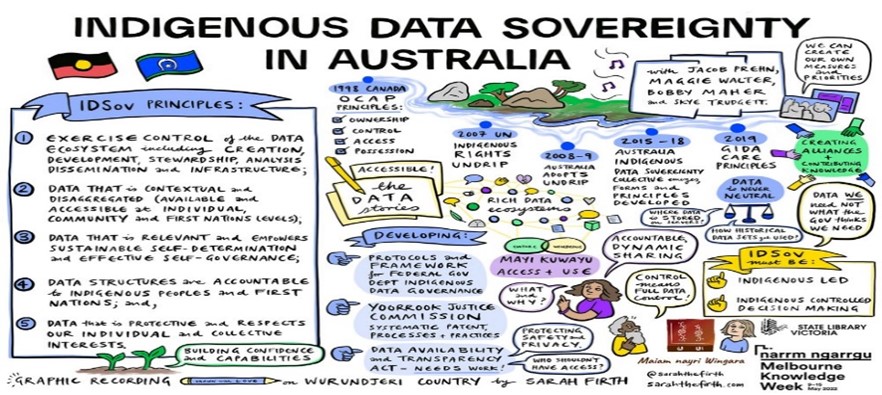
5. Reserved Seat activity
In my capacity as reserved seat holder, I have contributed to the Inherent rights working groups as well as my continued involvement in the First Principal review. I have worked on key aspects associated with the first principles review, (FPR). The FPR is aligned to outcomes associated with the traditional owner settlement Act.
I have been further involved in the FPAV inherent rights working group.
Native title represents the inherent rights of Indigenous peoples to their traditional lands and waters, recognized both in common law and increasingly through statutory frameworks. These rights, which predate colonial impositions, affirm that Indigenous communities have maintained continuous connection to their territories—manifested through cultural practices, economic activities, and spiritual ties—and are entitled to manage, use, and protect these lands. Acknowledging native title is essential as it not only validates the historical and ongoing custodianship of Indigenous peoples but also serves as a foundation for self-determination, enabling communities to negotiate on a more equitable basis with governments and industry. This recognition is a critical step toward addressing past injustices and promoting sustainable, culturally aligned development and is a key pillar in the planning and strategic thinking within the Treaty planning process.
6. Economic Prosperity
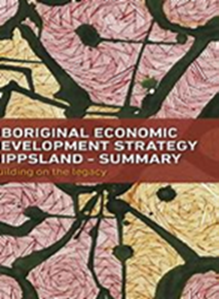
I attended the Federation of traditional owners’ workshop so that we could learn about a proposed roadmap to economic prosperity for All Aboriginal Victorian this was a two-day seminar that focused on an approach to support economic prosperity across the following domains, see bullet points below. The roadmap was developed by an evidence-based approach emphasizing that economic development is not just about financial investment but is deeply tied to governance and cultural strength. The Project identifies three key pillars of successful Indigenous economic development:
- Sovereignty Matters – Indigenous nations that make their own decisions about development consistently outperform those whose decisions are made by external governments.
- Institutions Matter – Strong, culturally legitimate governing institutions create the conditions for economic success.
- Culture Matters – Economic strategies that align with Indigenous values and traditions are more likely to succeed.
It was suggested that Applying these Ideas to the Victorian Aboriginal Context of the Treaty State through negotiations, water rights, and economic justice, these insights could be critical for advocating self-determined economic strategies. This means ensuring that policy and funding decisions are led by Aboriginal communities, that economic models respect cultural knowledge, and that land and water rights are not just recognised but controlled by Traditional Owners.
Key Treaty and traditional owner question as to economic prosperity
- Do we have real decision-making power over our lands, resources, and policies?
- How do we strengthen our governance institutions to be accountable and effective?
- Are our legal and political structures stable and enforceable?
Our Negotiators Statewide Treaty

January 2025 — Meeting of Assembly at Naarm
Introduction
The opportunity to provide feedback to Southeast ATSI and Traditional Owners as to my last three months is one element of accountability to inform people as to the tasks ahead of us as we move into the critical phases of Treaty making. Treaty formally kicked off at a ceremony on Wurundjeri Country in Melbourne, the First Peoples’ Assembly of Victoria and the Victorian Government officially started the negotiation of the first Statewide Treaty. This significant event was a powerful step forward in asserting sovereignty, self-determination informed by the guiding principle the Assembly will take into negotiations is that decisions about Aboriginal matters, should be made by Aboriginal people. This cornerstone philosophy is a foundation that informs all the conceptual to realise a treaty in Victoria. I was deeply privileged to be at this event with my Southeast colleagues Peter Hood, Alice Pepper and Brian Stevens.
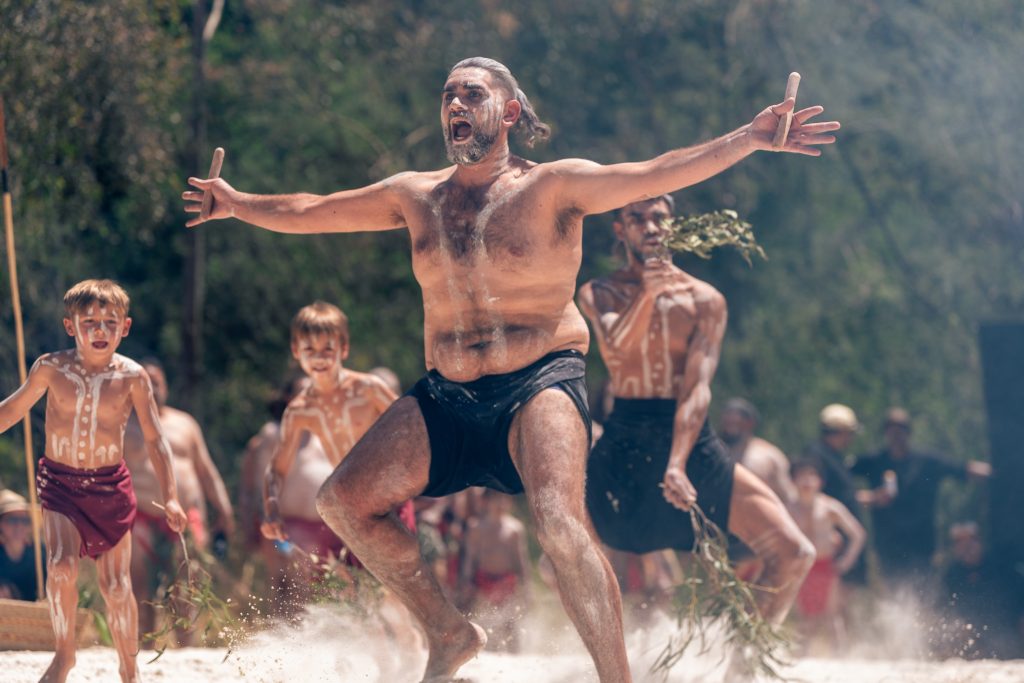
The upcoming negotiations will focus on the first Statewide Treaty which is expected to expand the roles and responsibilities of the Assembly so that local knowledge can always inform decision-making when it comes to Aboriginal communities, cultures, languages and land.
Work priorities
Since the last reporting period work priorities have centred around the following areas that are closely aligned with Treaty making these are
- Self Determination fund Committee
- Treaty Negotiation Team
- Reserved Seat activity
- Treaty Committee
- First principles review
- Community engagement and planning
- Economic Prosperity
Self Determination fund Committee
In my role as chairperson of this committee we have had two meetings over the reporting period, the focus of these meetings has been to ensure that the effective running of the Trust Fund of which the FPAV is the sole member is operating in accordance with the warranties set, which mandate the focus of our work to maintain oversight of the following
- Providing Guidance on equal footing
- Providing guidance on community engagement
- Providing Guidance to engagement with the Bidwell Peoples
- Approving the pillars of the Investment strategy
It must be noted that my work on the SDF committee is to ensure The Self-Determination Fund will not directly deliver community and social services, however, ensure that it shall provide a framework for a flexible and adaptive financial resource that First Peoples can access in line with their Treaty negotiation needs and their broader priorities and aspirations. Over the course of the last three months the application of the SDF has seen the approval of $ 600,000 to traditional owner groups from the fund.

If you are interested in thew SDF and how you access this fund, please contact the Self-Determination Fund here. Noting the FPAV SDF committee is not responsible for the funds administration.
Recruitment of Trustees: One key function that has been assigned to the committee is the recruitment of vacant Trustees, these roles offer a generous stipend, if anyone is interested in these opportunities please keep your eyes open or reach out to one of the South East members if you are interested either Peter, Brian, Alice or I will be able to point you in the right direction. The vacancy occurred due to Lisa Briggs standing down as she is now an elected member of the FPAV, shout out to Lisa for all her great work as a fund director.
Treaty Negotiation Team (TNT)
As mentioned in the introduction, Treaty negotiations begun in November 2024. My role as a representative has altered so that I can further support Treaty negotiations. In October 20024 I undertook a merit-based selection exercise so that I could participate in the Treaty negotiations as an additional support for our Co-Chairs Rueben Berg and Ngarra Murray. My role in the team is to support conversations with the state as to their opening position as to Treaty. This work has seen me transition into a fulltime negotiator. which has had some impact upon my ability to undertake the community engagement responsibilities we all have. I am available nonetheless for any community conversation where requested.
Get to Know your treaty negotiating Team

Reserved Seat activity
In my capacity as reserved seat holder, I have addressed the Gunaikurnai AGM and provided a broad overview of treaty progress including holding discussions with the GK elders’ council and with community members across Morwell and Traralgon. Key questions have focused on how local treaties work and what would practical outcomes look like at the statewide level and at the local level.
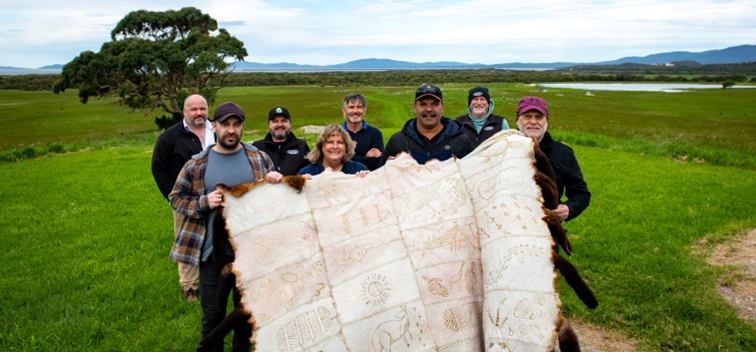
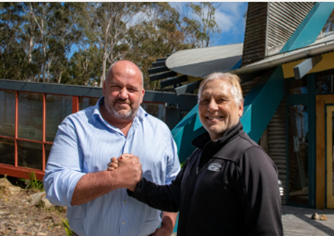
Treaty Committee
The treaty committee and the collaborative work that has occurred here goes to the guts of what treaty ought to look like, noting that key elements of this have been shaped by community consultation and statewide working groups.
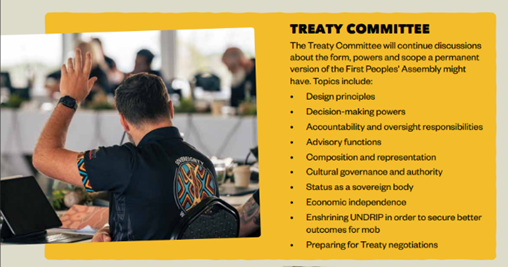
Within my remit on the committee key deliverables are to ensure the Treaty Committee will support the Chamber to make decisions in relation to Treaty and the Self-Determination Fund we do this by making recommendations to the Chamber in relation to Treaty, the Self-Determination Fund facilitating attendance and the offering of advice and support to a First Peoples’ Treaty, making decisions under delegation from the Chamber, as necessary.
First principles review
I have worked on key aspects associated with the first principles review, (FPR). The FPR is aligned to outcomes associated with the traditional owner settlement Act. The FPAV has been tasked with a specific role in moving the consultation phase of this work forward and are hoping to have this approved by government by the end of January 2025. Our committee is aiming to seek Cabinet authorisation on 16 December, for stakeholder engagement to commence in January 2025. So far parties have shown genuine commitment, goodwill and hard work. However, delays to the Cabinet date have been disappointing and the principle of free, prior and informed consent has been neglected through this process. Our working group believes implementing the FPR recommendations should be readily achievable, particularly when viewed against the broader body of work associated with Treaty.
What is the FPR? The report provides 36 recommendations to the government for both legislative and policy change to enhance Traditional Owners’ rights under the TOS Act. Most recommendations were jointly agreed between the Traditional Owner and Government review parties. However, some were individual recommendations not supported by the other part. I would encourage all traditional owners across Gippsland to familiarise themselves with the FPR, have a look here.
Community engagement and planning
All Southeast elected members meet once a fortnight to scope out activity to support the Treaty process, this is called collective support this is a key deliverable for all of us and is designed to enable broad conversations as to how community feed into the treaty making process and inform this based upon community perspectives and their lived experiences. We have designed a community engagement strategic plan that will ensure that we focus on key areas, these include the ACCO sector, all traditional owner groups, key reference groups such as Delk Dja, RAJAC, visits to Fulham Wulgungo Nglu to name a few. If you are interested in learning how to lean into regional engagement and find out more as to the critical next steps in the treaty making journey, I encourage you to meet with one of us.
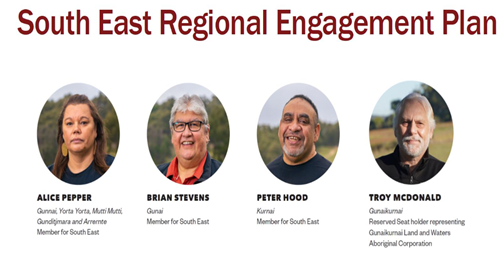
Economic Prosperity
In my previous report I discussed key work that was underway in defining prosperity, this working group has now wound up as the key elements of this are in draft stage to better inform the treaty negotiations as to next steps. One of the key features of this work was the exposure and inclusion of the Victorian Aboriginal Arts Community and how they contribute to the overall well being of mob through their creative processes such as song, storytelling acting, music, visual art other mediums. By bringing these people into the broader Treaty conversation through their representative body the Black Arts Collective/ Caucus brings different viewpoints and ideas as to how treaty making could support a future looking ATSI arts community across Victoria.
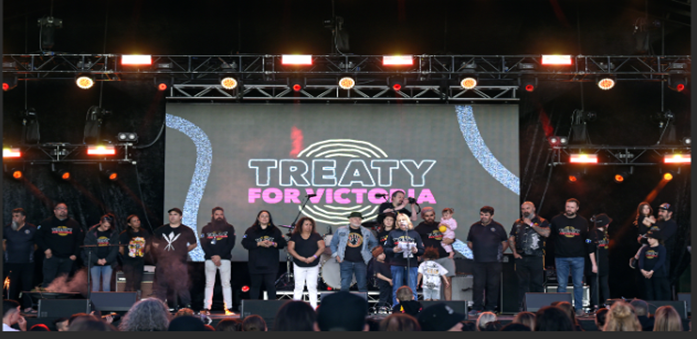
Treaty day Out is Coming to Gippsland- Morwell
I can’t close out a report without mentioning the incredible behind the scenes work that has occurred with the awesome SE engagement team and my Colleagues Peter, Alice and Brian. On the surface these types of events look easy to pull off, our staff and elected representatives have worked tirelessly to bring this event to our patch, months in the making, lots of strategy and lots of considered thought as to venue and artists – hoping to see you all there. Wanna find out more, head to TreatyDayOut.com
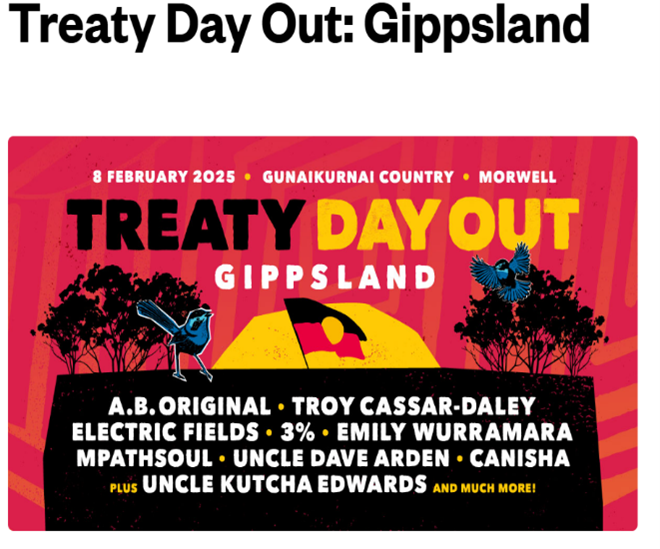
If Gippsland mob want to chat I’m available, lets set up a yarn, my details are below.
Thanks for your support, Troy
November 2024 — Meeting of Assembly at Shepparton
This report covers key activities over the last three months as my role as the Gunaikurnai Land and Waters Aboriginal Corporation’s Reserved Seat holder for the First Peoples’ Assembly of Victoria.
The report will focus on key responsibilities numbered 1-6. The sections of the report cited below represent my current workload deliverables as an elected Member on behalf of the Gunaikurnai and are key pillars in the work I’m asked to deliver as we work towards Victoria’s and Australia’s first ever Treaty with the First Peoples of this Country.
Introduction
- Self-Determination Fund (SDF) Committee Convener
- Treaty Committee – Outputs
- Community Engagement Update
- Political Engagement
- Looking ahead
- Attachments
- Conclusion and thanks
September 2024 — Meeting of Assembly at Swan Hill
Region: South East
Reserved Seat: Gunaikurnai Land and Waters Aboriginal Corporation
Purpose:
The purpose of this report is to provide a summary of activity which will inform the pathway to treaty making in Victoria. The report is a key accountability measure in my capacity as the reserved seat holder of the Gunaikurnai Land and Waters Aboriginal Corporations.
Scope:
The scope of the report covers the reporting period from Monday 1st July 2024, up to the 4th of September 2024 Chamber meeting Swan Hill. The report will highlight key activities associated with engagement, strategy and planning, including political actions associated with the objective of a Treaty with the state of Victoria by the end of the calendar year 2024. The report will provide a summary of key activities associated with my role as director of FPAV.
Positions held:
- Chairman Self-Determination Fund Committee,
- Convener Economic Prosperity Working Group,
- member of the Accountability Working Group,
- member of the Treaty Committee,
- Director First Peoples’ Assembly Victoria.
- Chairperson GLaWAC
Work priorities:
ACCO Forum 26 August 2024
In my capacity as GK representative I supported the Assembly to prepare for statewide Treaty negotiations, engagement with the Aboriginal Community Controlled sector intensified over the reporting period. A key feature of this work was to ensure the advocacy and expertise of the ACCO sector, and the collective voice of other Governance Forums informed the approach to Treaty making as well assist in the priority’s that will inform a negotiation brief that will lay down the foundations for the first Treaty. This work has been and will continue to be, a key driver of the journey to Treaty. Alongside other forms of engagement such as regional gatherings, this series of forums is designed to be an interactive space to engage a broad range of ACCO stakeholders. We as Assembly members have identified that ensuring ACCO’s and Governance forums see themselves in a Treaty landscape is going to be critical to being able to build collective support for Treaty and to set the community and ACCO sector up for success in a Treaty era.
Treaty / VACCA Placed Based Project (PBP) Morwell.
I attended and supported the VACCA place based Project prior to this I attend and was briefed by the CEO of VACCA as to the Strategic Governance Group’s whose role is to ensure that the Morwell PBP implements the National Agreement through a long-term community development approach that “responds to local priorities” (Clause 35), as consistent with the agreed partnership elements (Clauses 32-33).
The group also has responsibility in informing the Ngaweeyan Maar-oo Partnership Forum and the State Close the Gap Partnership forum of progress against funded deliverables. Ultimate role is to approve and submit a budget bid for 2025/26 State budget.
The National Agreement on Close the Gap commits the Commonwealth, State and Territories, and the Australian Local Government as parties to the Agreement, to jointly establish six place-based partnerships to focus on implementation of the National Agreement at the regional or local level. Community data projects are also a commitment but not compulsory in each jurisdiction.
The local place-based partnership will have the following outcomes:
- Demonstrate how implementation of the Closing the Gap Priority Reforms at the local level can fundamentally change the way the government does business with Aboriginal people, communities and originations.
- Support community to develop approaches that foster transformational and sustainable change and respond to community priorities under the National Agreement, rather than programmatic approaches which react to symptoms or temporary issues.
- Support the community in Morwell to determine their aspirations and priorities under the National Agreement through local representative structures, including through the development of community development plans which elaborate those aspirations and priorities.
- Track implementation of all aspects of Closing the Gap in Morwell to demonstrate the practical application of the National Agreement on the ground.
- Bring Aboriginal communities together with governments to share decision making, drive community-led outcomes and support community-led development initiatives under the National Agreement. I supported key outputs across the forum on the following dates, In lieu of the unavailability of FPAV co-chairs.
- 5 August 2024 (Project Governance Groups) – Chair Muriel Bamblett
- 12 August 2024, Community Workshop all day event
- 13 August 2024 Community Workshop, all day event
Self-determination fund.
As Convener of the SDF my committees work over the last three months has focused on affirming several warranties with the state of Victoria. The purpose of these warranties is to ensure that key deliverables are actioned so that the First Peoples’ Assembly of Victoria can demonstrate that it is complying with agreed assurances to support an additional $15 million allocation in to the Self-Determination Fund. The assurances represent the SDF trustee actions such as audit it audited reports, annual general reports investment strategies to name a few.
Key Highlights of the SDF Committees work
Over the last three months I have been leading the work with my committee and our policy experts to ensure that our responsibilities under the Self-Determination Fund Agreement are and have been met, the following has been actioned by the committee to ensure we receive the final instalment of $15 million will be released to the SDF.
- The Trustee of the Self-Determination Fund is working towards receiving the third payment from the State of $15 million.
- This is the final payment from the initial funding obligation of $65 million.
- the 2023/2024 SDF Annual Report must be published on the Assembly’s website
- the Assembly must affirm warranties to the State prior to the third State payment.
- The Fund’s Annual Report ratified and was published on 29 August. (metric met)
- The Annual Report was published in accordance with the expectations of the warranties
- Affirmation of the warranties was ratified by Council on 29/ 30 August. (metric met)
- Council affirmed the warranties to the State. (metric met)
Noting this is the only function that has been retained as a responsibility of Council rather than it being with the SDF Council Committee.
First principles Review working Group
I have been collaborating with Traditional Owners as to seeking a positive outcome related to several recommendations associated with the First principles Review. The Review is timely, as the Settlement Act has been in operation for over ten years, resulting in three finalised agreements, and other Traditional Owner groups in active negotiations with the State. As a result, increasing areas of Victoria are becoming subject to binding legal agreements recognising Traditional Owner rights. In addition, the Review has occurred against a changing landscape in both Victoria and across Australia, not least because of the Victorian Government’s recent commitment to Treaty and the Yoorrook Justice Commission, but also because of the Government’s commitment to Self-determination as a human right. More broadly, there have been substantial advances in the law associated with the Native Title Act 1993 (Cth) (NTA), including the recognition of commercial rights in Akiba v Commonwealth of Australia [2013] HCA 3, and the establishment of a methodology for calculating native compensation in NT v Mr Griffiths (deceased) and Jones [2019] HCA 7 (Timber Creek decision).
The FPAV / FPR working groups objective is to provide an analysis to the governments Interdepartmental Committees First Principles Review Draft Implementation Plan. This work has been focusing on prioritising several Tranches that best support Traditional Owner priorities rather than government, the outcome sought is to have an effective and agreed Implementation plan for the FPR which aligns with self-determination and greater input from traditional owners.
The work has involved the following.
- Prioritising the Recommendations
- Agreeing to the Terms of Recommendation
- Identifying where further work is required
- Assessing Implementation priority against High, medium, low priority or no longer required Comments / feedback
Economic Prosperity Working Group
As the Chairperson of the Economic Prosperity Working Group our deadly team with the support of our policy staff “Daniel Yore” are building a brief as to the aspirations associated with economic prosperity. The work is cutting edge and will inform the FPAV position as to wealth and prosperity for mob. This work will feed into the FPAV negotiation brief that must be concluded by 16 October 2024.
This work has line of sight to our submission into the Yoorrook enquiry in particular The Assembly’s submission emphasises the following key points:
- The economic dimension of Self-determination is an essential component of full and meaningful Self-determination and to ensuring that First Peoples have the power to shape and decide on systems, laws, policies, and programs that impact them.
- The economic injustices that continue to be experienced by First Peoples are inextricably linked to past injustices, colonial practices and Victorian Government acts.
- Lessons from other jurisdictions demonstrate that better economic outcomes are achieved for everyone when First Peoples have greater control and decision-making power over their financial resources.
- The Treaty process in Victoria provides the opportunity for systemic reform and shifting decision-making power from the Victorian Government and into the hands of First Peoples. This will benefit First Peoples as well as all Victorians.
- The Self-Determination Fund is a ready-made vehicle to enable First Peoples economic prosperity and economic self-determination
The work I am leading is supported by the following conceptional framework.

Collaboration with the Kaiela Institute 30 August 2024
The Economic Property working group has focused its efforts to work closer with the Kaiela Institute. Kaiela is a First Nations-led analysis and policy think tank which provided a place and a process to encourage and support our leaders and institutions to collaborate and take a more strategic approach to building the future of our Goulburn Murray community.
In my role as Convener of the Economic prosperity working group our team has focused on an opportunity to leverage off the learning of the Kaiela Institute to shape a process as to how we implement economic prosperity. WG5 is keen to understand, and implement were possible how to integrate and how we re-think and act. To design and implement an inclusive future for all Aboriginal people across the state by learning from the Goulburn Murray region of Victoria. The FPAV is committed to innovative solutions, focused on regional development, prosperity and sustainability of First Nations cultures. Our work will be shaped by the experience and learnings from Kaiela.
June 2024 — Meeting of Assembly at Portland
This report reflects my activity across the last reporting period From March 2024 -28 June 2024. It includes activities across:
a. Organisational strategy and planning
b. Community engagement
c. GLaWAC feedback and updates
d. Corporate engagement.
2. Organisational strategy and planning
FPAV work priorities: Over the past few months, what have been the areas of work or key messages you have been sharing with Community in your region? What have you been seeking feedback on?
2.1: Self Determination Fund (SDF)
As Convener of the SDF, I have overseen several meetings so that key activity is able to progress to ensure the FPAV as a member of the fund is compliant with its obligations. I have spent 2023 working towards the key objectives outlined in the SDF strategic plan notably the implementation of the Plan. This year’s primary focus has seen the post implementation activities of this plan. Key actions have been
- Approval of allocation and expense budget for SDF
- Development of memorandum of understand between SDF and FPAV
- Approving of the SDF investment strategy
- Preparing for SDF Annual General Meeting 2024 as well as vetting publish related reports.
- There have been 3 meetings of the SDF committee across this reporting period
2.2: Reserved Seat Assessments
Since March 2024, I have worked with Rueben Berg and our legal team so that a culturally appropriate assessment of the Reserved Seat process for the Wamba Wemba Aboriginal Corporation could be ratified. This work was undertaken across the previous 12 months; however, it was between March and June 2024 the work was final concluded and endorsed through the FPAV authorising environment. The culmination of the reserved seat assessment process reached its climax on 28 June 2024 where the WWAC delegate took up her seat on Chamber. This was a groundbreaking moment of the FPAV and demonstrates that our process’s work and have community at its forefront.
2.3: Working Group 5 – Economic Prosperity
The FPAV has stood up 5 working groups to ensure that we have effective structure that feed on the FPAV Draft Negotiation brief which is a priority output that will involve community input. There have been 3 meetings across this reporting cycle that have laid the frameworks as to what Economic Prosperity looks like in the Treaty implementation landscape. Currently the work is focusing on creating wealth and prosperity (building sovereign wealth for generations). The Economic Prosperity working group is leveraging off the inputs of subject matter experts who are practitioners within the economic prosperity landscape. The working groups has three areas of development work which are the main focus, these are represented in the drawing below and will inform the negotiating brief over the next 300 days.
2.4: Working Group 2- Governance and Accountability
I have spent one meeting across this groups as the work groups are defining the priorities for next 300 days. The working groups focus is to leverage of several reports so that we can shape our position as to recommendations from Yoorrook, Closing the Gap Priority reform actions, the working groups will also leverage off key aspects of the Productivity Commission’s recommendations and review of Aboriginal expenditure which will also shape our work.
2,5: Data Sovereignty think tank
We are reconvening the Data Sovereignty think tank, I convene this meeting with Alister Thorpe. The output we are seeking to build is a solid FPAV data sovereignty process that leverages off evidence-based work. The work seeks to align the importance of Self-determination and the ownership of data, through sound cultural governance practices is at the cornerstone of our intellectual property rights. This work has gained traction and is leveraging off key work undertaken in the space by the Treaty Authority across the last 5 months.
2.6: Treaty Committee
I have attended all Treaty committee meeting over the last reporting period, these meetings are a significant part of the FPAV authorising environment and are a cornerstone activity that shapes the direction of Treaty making here in Victoria. Key points:
- Meetings occur fortnightly, equating to 6 across reporting period
- Treaty Committee progress work across to Council
- Council progress work across to chamber for ratification
- Treaty committee shapes and supports working group outputs and timelines
2.7: Council
I have attended all council meetings across the reporting period, 1 every month. Councils purpose is to ensure good compliant governance, probity and fiduciary duty occurs across the organisation, as well as key materials and decision making process make its way to Chamber for consideration and action..
2.8: Media
I participated in 1 media interview with ABC Gippsland. The focus was on regional engagement and expected outputs of the engagement, The ABC interview focussed on key messaging as to what the FPAV priorities were over the remainer of 2024.
3 Engagement activities:
- Regional KESO/ KEC forum, 29 May 2024, 100 people in attendance approx.
- GLaWAC Community Day Out Morwell, 400 people in attendance March 2024
- 2 GLaWAC Board Meetings – Treaty updates provided April, May and June 2024
- Monash University Sustainable Development Institute 29th May 2024 – 55 people in attendance
- Bairnsdale Community engagement gathering, 19 June 2024
- Morwell Community Engagement Gathering, 20 June 2024
- Warragul Community engagement Gathering, 21 June 2024
- Elders update April 2024
- 15 Individual community member catchups around Latrobe Valley – unplanned and ad hoc across reporting period
- Victorian Philanthropic Treaty and SDF luncheon presentation 24 April 2024
- Traditional Owner Land Management Board – update and overview April 2024.
- Rumahyuck Community Luncheon in Sale to learn about Treaty. Attended with Brian Alice and Peter 1 May 2024
- Catch-up and short discussion with DELK Dja Indigenous family violence working group. – Ad-hoc and opportunistic discussions. 13 May 2024, Morwell
- Victorian Policy Apology to Stolen Generations – AAL community networking. 24 May 2024
- Victorian Aboriginal Servicemen Remembrance Day – Reef laying and Treaty networking 29 May 2024
- Reconciliation week activity: Latrobe City Council flag week raising 27 May 2024
- Discussion with National Party reps Gippsland 13 June 2024.
- AIATSIS Conference, 3 -7 June 2024, 4 speaking engagements and session facilitation actions.
- After Hours Treaty networking with AITSIS delegates MCG – 7-10 pm 6 June 2021
- 4 ad-hoc meetings with Aboriginal artists as to Treaty Day Out April-May 2024
- Orbost Full group meetings, Bidwell, Nagario Monero and Gunaikurnai. attended with Brian Stevens and Peter Hood. 150 people in attendance across two days Friday and Saturday May 2024 Note: 700Km travelled for this one.
Insights:
- Change of government implications – this gets high rotation everywhere.
- People are genuinely in awe of the work undertaken to date and depending on the group feel informed including the professionalism of our staff and members.
- People want more organised engagement, they seem to understand the Treaty elements, but would like to know more as to how we are posturing for the future, they really want more detail on the pathway for the next 300 days.
- There is a strong desire for FPAV to review its electoral boundaries across West Gippsland and Bass Coast.
- Some People think that Gippsland should have 6 representatives across 6 local government areas
- Some people would like to know more about how the Reserved Seat process works.
- Regionals would like greater outreach with the SDF
- Can community apply for SDF across phase 1? These people understand that they may not go on the TA data base but require to have the scope to hold discussions around Treaty and how they engage better with the process.
- There have been no negative comments that have been amplified in any of my meetings
4 Implementation:
- The insights should inform future planning priorities so that we can build structure and deliver workshops against key themes across Gippsland.
- Looking ahead: Are there any key areas of work you will be progressing in the upcoming months? What opportunities will Community members in your region have to connect with you?
- Community can connect directly to me through the Morwell office, Collingwood office and GLAWAC Office. Community can contact me directly if they need to have a Treaty conversation.
The feedback form regional consultation and ad hoc meeting is a clear desire to focus more activity across the future and current work associated with Treaty Strategy. Furthermore, Reserved Seat opportunities as to education of the process is a highly desired expectation. An expectation that the Treaty Authority and the Self Determination Fund have a presence in regional meetings was evident across all regional meetings, it is noted that Andrew Jackamos did attend the Gippsland meetings.
March 2024 — Meeting of Assembly at Lakes Entrance
My name is Troy McDonald, and I’m fortunate to be nominated as the reserved seat holder on behalf of the Guna Kurnai Land and Wates Aboriginal Corporation, this is my second term as a Member of the First Peoples Assembly Victoria where I was elected on to the Board on 19 December 2019 and again in July 2023.
Over the past few months, I have been heavily involved in internal activities intended to shape inclusiveness in my role as an Assessor for additional reserved seats. This work has been a complex and detailed process designed to ensure that a transparent and unbiased evaluation, whilst respecting for confidentiality with raged to the applicant. As a part of the Reserved seat process, I support the team’s ethical conduct which assisted in building a positive, inclusive, and accountable assessment outcome that leveraged of facts and evidence. The outcome of this work should be realised in the March 2024 Chamber meeting.
I am also leading work as the Convener of the Self-Determination Fund Assembly Committee. The fund has taken a fair bit of sustained effort in order to stand up a Trustee Structure which ensures that we have mechanism of oversight to protect the community assets entrusted with us. A couple of key deliverables were, review of funding guidelines, memorandum of understanding and recruitment of a SDF chief Executive Officer. The SDF structure leverages off a robust but separated relationship with Trustees and the SDF committee – this work will continue over this term of the FPAV for the next three years.
I am also heavily involved in key strategic actions associated with the Treaty committee. The purpose of this committee is to support decisions in relation to Treaty making and the Self-Determination Fund. One of the key deliverables of my role is to support the co-conveners in shaping the work around minimum standards, support the development of a Strategic Engagement Plan and the stand up of Treaty committee work streams that focus on the following:
- Economic Empowerment
- Inherent Rights
- Accountability and oversight
- Strengthening Culture, communities, and family
- Future Assembly and Transformed relationships.
It is anticipated that these committees will be activated around April 2024.
As the year unfolds there are two types of engagement that I have undertaken, these are defined as Strategic Engagement & Community Engagement. I have provided Treaty insights to the One Gippsland Forum which is a peak organisation platform that seeks to have a coordinated voice across the social and economic space across Gippsland. As an invitee to this forum my role was to provide an overview of work to date as well as seeking strategic allies for the Victorian Treaty process. As a reserved seat holder and Chairperson of GLaWAC this was a critical touch point for the promotion of the FPAV and the agenda we are pursuing across the state.
I have also met with The Gippsland Regional Partnership Forum (GRPF) which is a consultative body that engages with its community throughout the year. The Gippsland Regional Partnership is one of nine Partnerships across the state, established by the Victorian Government, recognising that local communities are in the best position to understand the challenges and opportunities faced by their region. Why is engagement with these groups important? Through the Treaty process local treaties will be on the table across regions, as such it is imperative that these groups understand and educate that there may be some involvement through platforms such as the GRPF to engage with a localised Treaty process.
Since November 2023 up to March 2024 I have worked with other South East Assembly Members conducting engagement across Lakes Entrance, Morwell, Warragul, and Ramahyuck. Some of the key learnings are that people are genuinely interested in Treaty and what it could mean for them. Many participants have indicated that they feel heard when they raise issues. That said, the social complexities around housing and social justice are a constant amplification for system change and some of these issues were also part of the feedback I received in my recent visit to Fulham prison. To summarise key insights:
- More information on Self-Determination Fund
- How will the Treaty Authority work?
- How do you define what is in scope for a local Treaty?
- What is UNDRIP and does FPAV provide information and knowledge sharing regarding this topic?
The insights gained ought to be able to inform broad decision-making based upon consultative feedback from constituents. The learnings ought to inform FPAV policy development and how we build our community engagement in the journey to Treaty. This process needs to be underpinned by trust and inclusiveness that supports a roborative opportunity for all First Peoples to participate in.
From March 2024 we are hopeful that FPAV will meet the threshold as the Aboriginal Representative Body to negotiate Statewide Treaty, we are hopeful that we will have a position/s as to what these negotiation points are in the second half of 2024. Assembly South East Members will be required to share points for feedback across the remainder of 2024, furthermore FPAV know that we need to mobilise as many of our people as possible so that we can continue to build a mandate and support for Treaty here in Victoria.
I would like to express my gratitude to all people that have supported me in this important role, I would also like to give a shout out to those community members that activate their voice in this process. I am always available for a conversation and encourage any and all to contact me if they would like a catch-up. Thanks Troy.
